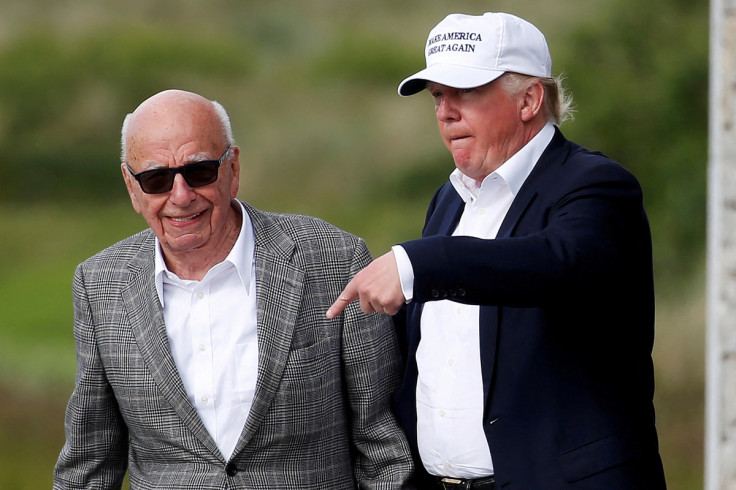Rupert Murdoch Can Be Compelled To Testify In Fox Defamation Trial

Fox Corp executives Rupert and Lachlan Murdoch can be called to testify at this month's defamation trial over a $1.6 billion lawsuit claiming the media company lied about voter fraud in the 2020 U.S. presidential election, a judge said on Wednesday.
Rupert Murdoch, the 92-year-old chair of Fox Corp, and his son, Lachlan Murdoch, its CEO, were not on the list of witnesses that Fox intends to make available for the trial, in a case brought by Dominion Voting Systems.
"If Dominion wants to bring them live, they need to do a trial subpoena and I would not quash it and I would compel them to come," said Delaware Superior Court Judge Eric Davis.
Davis said Fox board member Paul Ryan, a former Republican speaker of the U.S. House of Representatives, could also be issued a trial subpoena.
A Fox spokesman said Dominion was trying to distract from its weak case.
"Demanding witnesses who had nothing to do with the challenged broadcasts is just the latest example of their political crusade in search of a financial windfall," said an email from Brian Nick of Fox.
The judge said there was an objection by Fox to Rupert Murdoch's testimony which would probably have to be resolved at trial.
The trial already features a parade of Fox's biggest on-air personalities, including Tucker Carlson, Sean Hannity and Maria Bartiromo.
The jury trial is scheduled to start on April 17 and expected to last about four weeks.
Dominion is hoping to prove that Fox ruined its reputation by repeatedly airing false claims by former Republican President Donald Trump and others that its voting machines were used to steal the 2020 election for Democrat Joe Biden.
To prevail, Dominion must establish that Fox acted with actual malice, meaning that it knowingly spread false information or acted with reckless disregard for the truth.
Fox has argued that its coverage was protected by the U.S. Constitution's First Amendment because election fraud claims were inherently newsworthy, and its hosts and guests were entitled to express their opinions.
On Friday, Davis rejected much of Fox's defense, and said Dominion's case was strong enough to go to a jury.
© Copyright Thomson Reuters {{Year}}. All rights reserved.





















